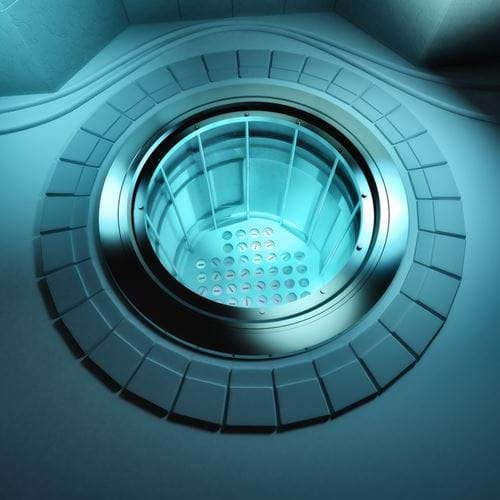The future of nuclear power generation #COP21

8th December 2015
Nuclear power is already playing a vital role in decarbonising the global energy economy. Its capacity to provide base load power makes it a stable and low-carbon energy supply.
Nuclear power provides approximately 11 per cent of the world's energy. In the UK, nuclear power generation makes up 19 per cent of the energy landscape. The proportion is much higher in France, at 75 per cent.
However, there are still significant public concerns over the safety and environmental impacts of nuclear power, and the legacy issues of waste. These concerns mean there is often very little support for new nuclear power plants.

As we move to a low carbon future nuclear, new build will have to play an even bigger part in the energy strategies of many governments, because nuclear doesn't emit carbon dioxide during power generation.
It is more important than ever to meet all views with an open mind, and for science and engineering to play its part in providing safer and more efficient solutions in the nuclear sector.
As existing nuclear reactors are shut down and decommissioned over the next decade, that base load capacity will need to be replaced with new nuclear power stations to keep up with the increasing energy demand.
To that effect, IChemE welcomed the recent announcement of Chinese investment in a new nuclear power station at Hinkley Point C in Somerset, UK.
The decision, which represents the largest inward investment (£2 billion) in the UK’s history, underpins the partnership between France's EDF Energy and China General Nuclear Power Corporation (CGN).
New designs of highly efficient reactor technologies have been developed to help close the nuclear fuel cycle, and will make the energy supply even more efficient. There are currently three new build designs in the pipeline for the new generation of nuclear reactors:
- European Pressurised Reactor
- Pressurised Water Reactor - AP1000
- Advanced Boiling Water Reactor
With the proposed sites in the UK the base load output of the UK's nuclear new build could provide up to ten gigawatts (GWe) of power.
Solutions for dealing with waste and integrating recycling into the fuel cycle - both of which are critical to the future success of nuclear - are currently being developed by chemical engineers. One example is the development of the technology for "fast" breeder reactors which uses nuclear waste, specifically plutonium, as its fuel.
Existing nuclear technologies can also play an important role in supporting the growth of developing countries energy strategy. However, effective knowledge transfer is needed to ensure high levels of process safety are met.
Standards of safety, efficiency and environmental performance in all stages of the nuclear fuel cycle must also continue to improve.
So as the second week of COP21 progresses, we need to make sure that chemical engineers are a key part of the climate change agenda. It's chemical engineers that have the unique skills and systems-thinking approach to optimise safety and efficiency in the nuclear sector.
If you are in Paris, you can participate in the official COP21 side event - Technology solutions for a two degree world - where IChemE Energy Centre Chair, Stef Simons, will be presenting, as part of an exploration into the existing technologies we can deploy to tackle climate change now.
The IChemE Energy Centre is also hosting an evening panel discussion to coincide with this COP21 side event in IChemE’s London offices, so make sure to register and contribute to the climate change debate.